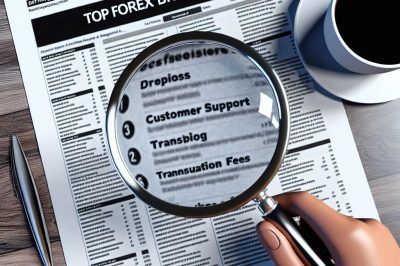Understanding Forex Brokers
Before diving into the search for a good forex broker, it’s essential to understand what a forex broker is. A forex broker serves as a middleman between traders and the foreign exchange market. Traders use these brokers to access platforms that facilitate their trades in buying and selling currency pairs. To gain a comprehensive understanding of forex trading, which is a crucial component of the global financial market, it’s beneficial to delve into various aspects that define and distinguish forex brokers.
Regulation and Licensing
One of the most critical aspects to consider when selecting a forex broker is their regulatory status. A well-regulated broker ensures that your funds remain segregated from the company’s funds, thereby providing an additional layer of security. Different countries have their regulatory bodies. For instance, in the United States, the Commodity Futures Trading Commission (CFTC) and the National Futures Association (NFA) are the primary regulators. In Europe, the Financial Conduct Authority (FCA) serves that purpose in the UK.
It’s advisable to verify a broker’s regulatory status through the official website of the respective regulating body. FCA, CFTC, and NFA provide platforms to check the legitimacy and licensing of a forex broker. Engaging with well-regulated brokers not only provides security but also ensures reliability and transparency in trading activities.
Trading Platforms and Tools
The trading platform offered by a broker is another significant factor. It’s the interface through which you interact with the forex market. A good platform should be user-friendly, stable, and equipped with all necessary tools for technical analysis. Popular platforms include MetaTrader 4 (MT4) and MetaTrader 5 (MT5). They offer extensive charting tools, technical indicators, and a supportive community of traders.
You may want to use a demo account to test the broker’s platform. This allows you to familiarize yourself with the system without risking real money. Demo accounts simulate real trading environments and can be invaluable for honing your trading skills, exploring platform features, and developing strategies.
Fees and Commissions
Brokers earn by charging commissions, spreads, or both. Understanding the fee structure is vital in estimating the cost of your trades. A commission-based broker charges a small percentage per trade, while a spreads-based broker profits from the difference between the buying and selling price (the spread). Always compare the spreads and commission across different brokers to ensure you get a competitive rate that suits your trading style.
Analyzing the financial implications of each broker’s fees and commissions can aid in maximizing profitability. Transparent fee structures allow traders to make informed decisions and plan trades more efficiently, ensuring that unexpected costs do not erode trading profits.
Customer Support
Reliable customer support can be a significant advantage, especially for new traders. A responsive and knowledgeable support team can provide assistance when you encounter issues with trading or using the broker’s platform. Look for brokers that offer various channels of communication, such as live chat, email, or phone support. Check the responsiveness by asking questions before opening an account.
Effective customer support fosters a better trading experience by providing timely solutions to technical challenges and other inquiries. The availability of diverse communication options enhances accessibility, ensuring that assistance is always within reach when needed.
Deposit and Withdrawal Options
The ease of depositing and withdrawing funds is a consideration that shouldn’t be overlooked. A good forex broker should provide multiple deposit and withdrawal options, including bank transfers, credit cards, and various e-wallets. Additionally, review the fees associated with these transactions and the processing time to avoid inconveniences.
An understanding of deposit and withdrawal procedures allows traders to manage their funds more efficiently. Minimizing transactional costs and processing delays contributes to better cash flow management, which is paramount in trading activities.
Account Types and Leverage
Different brokers offer various account types tailored to different levels of trading experience and capital availability. Some brokers provide mini or micro accounts that require a smaller initial deposit, which can be suitable for new traders. Another critical factor is leverage, which determines how much you can borrow from the broker. Higher leverage can magnify both potential profits and losses, so choose a level that matches your risk tolerance and trading strategy.
Account types and leverage options play a crucial role in shaping a trader’s experience. Selecting the appropriate account type in alignment with one’s trading capital and experience can optimize performance. Moreover, cautious leverage usage helps in managing risks effectively, ensuring sustainability in trading endeavors.
By carefully considering these factors, you’ll be better equipped to choose a forex broker that aligns with your trading goals and preferences. A comprehensive evaluation covering regulation, platform efficiency, customer support, financial terms, and account features enables a trader to make an informed decision, leading to a more satisfying and productive trading experience.





